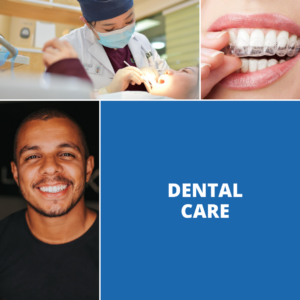Dentures vs. Implants: Pros and Cons for Seniors
Many of us will deal with the reality of age-related tooth loss sooner or later. For seniors, as many as 70 percent of us will be dealing with tooth loss at the time of this article. It’s a common, but unwelcome, part of aging. Seniors who are losing their teeth have a choice: dentures vs. implants. Dental implants for seniors are a permanent solution to tooth loss, whereas dentures are not.
Of course, we would all prefer to move through life with our own 25 adult teeth comfortably intact, but unfortunately, that is not an option for the majority of aging adults. Whether you have lost teeth through trauma, such as an accident, or through another health condition, such as gum disease and tooth decay, you may find yourself in a position where you are deciding on the right solution for your dental health: dentures vs. implants. Without the intervention of dentures or dental implants, it may be difficult for seniors to get the nutrition they need and enjoy the same quality of life they did before the tooth loss occurred.
Dentures for Seniors: Pros and Cons
Dentures have been around for a long time and many people are aware of them and know how they are used. Dental implants, however, may not be as commonly known. Dental implants for seniors are a permanent solution to the serious problem of tooth loss. By permanent, we mean that they are not removable like dentures. This is one of the main distinctions to keep in mind when weighing the pros and cons of dentures vs. implants.
If you are a senior who is impacted by tooth loss, you should know that both dentures and dental implants can be customized to fit you perfectly and to look and feel as natural as possible. Dentures are made from a variety of types of materials and they are shaped from a mold to perfectly fit your mouth. The old images of dentures we have seen poked fun of in movies and television are an outdated version of dentures and do not accurately portray dentures that are customized to fit your mouth and work for your lifestyle.
While dentures have improved significantly over the years they can still create some issues for seniors who use them. They are secured to the mouth with denture adhesive. Denture adhesive is not perfect and can sometimes fail to secure the dentures properly. This results in the slippage of dentures. Denture slippage is likely to happen at inconvenient or embarrassing times, like when you are talking or eating because that is when the adhesive is under the most stress and is being asked to work the most.
If the adhesive is not strong and slippage occurs it can be very uncomfortable as the dentures rub on your gums. Additionally, dentures need to be fitted regularly and in some cases, they will need to be replaced if they are not working for you or they begin to break down.
Dental Implants for Seniors: Pros and Cons
 Unlike dentures, dental implants are a permanent fixture in your mouth. Dental implants are caps (these will look like teeth and serve as teeth) that are implanted into your jawbone. They are shaped and colored to match your existing teeth so they look natural and are not recognizable as implants. That is to say, no one would know that you had an implant.
Unlike dentures, dental implants are a permanent fixture in your mouth. Dental implants are caps (these will look like teeth and serve as teeth) that are implanted into your jawbone. They are shaped and colored to match your existing teeth so they look natural and are not recognizable as implants. That is to say, no one would know that you had an implant.
Since dental implants are surgically implanted they fuse with your jaw over time, which means they are there to stay and can not be removed. Over time you will forget that your implant is an implant because it looks, feels, and works just like your original tooth. With proper care, you do not need to have your dental implant adjusted or replaced for 20 years or longer.
When deciding between dentures and dental implants, you will want to consider the fact that as you age, missing teeth can cause bone decay and bone loss in your jaw. The gaps that result from missing teeth can cause your other teeth to shift from their places, and your body can begin absorbing the bone. This can cause a sunken appearance in the face.
It is possible to prevent this from happening with dental implants. Implants fill the gap created by tooth loss just like a natural tooth wood. They keep your jawbone strong and preserve the shape and structure of the jaw. When considering dentures vs. dental implants, many people are most concerned about the issue of bone loss, so for this reason dental implants have become very popular.
Dental implants for seniors can be a great way to handle tooth loss associated with aging. They provide the freedom and comfort of natural teeth and are a reliable and safe alternative to dentures. The main potential drawback of choosing dental implants over another form of tooth replacement, however, is cost. Ultimately, you will want to consider maintenance, functionality, and price.
Dentures vs. Implants: A Comparison
As we have mentioned, dental implants outperform dentures for a variety of reasons in terms of maintenance and functionality. They look and feel like natural teeth and generally do not require any maintenance at all after you have healed from the implant surgery itself. If the cost is not prohibitive for you, dental implants may be the perfect option for dealing with tooth loss in a way that looks and feels natural.
To learn more and discuss the best solution for you, contact Cano Health today. If you’re concerned about the potential price tag for either option, check out this article on the dental services covered by Medicare.



